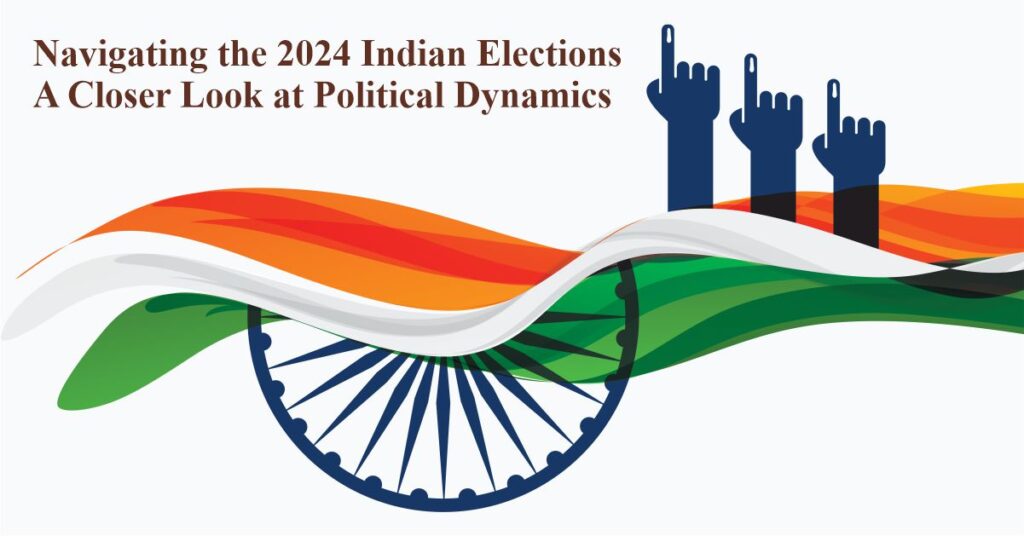India’s Economic Landscape and the 2024 General Election: Challenges and Opportunities

India's Economic Landscape and the 2024 General Election- Challenges and Opportunities - Indiavision news
As India gears up for its general election in 2024, the state of the economy looms large as a pivotal issue. With a population exceeding 1.3 billion and a diverse economic landscape ranging from agriculture to technology, India’s economic performance not only shapes the livelihoods of its citizens but also holds significant implications for global economic dynamics. This essay delves into the key economic challenges and opportunities facing India as it approaches the general election and examines how the outcomes of this democratic exercise may influence its economic trajectory.
Economic Challenges:
- COVID-19 Pandemic Fallout: The COVID-19 pandemic wreaked havoc on India’s economy, causing disruptions in supply chains, widespread unemployment, and a contraction in GDP growth. While the nation has been on the path to recovery, the scars of the pandemic continue to linger, posing challenges to policymakers.
- Unemployment and Informal Sector: India faces persistent challenges of unemployment, particularly aggravated by the vast informal sector. Despite various government initiatives such as Make in India and Skill India, employment generation remains a daunting task, especially for the burgeoning youth population.
- Income Inequality and Poverty: Income inequality and poverty are entrenched issues in India, with a significant portion of the population still living below the poverty line. Bridging this gap and ensuring inclusive growth are imperative for sustainable development and social cohesion.
- Infrastructure Deficit: India grapples with an infrastructure deficit across sectors such as transportation, energy, and healthcare. Addressing these deficiencies is crucial to unleash the full economic potential and enhance competitiveness on the global stage.
Economic Opportunities:
- Digital Transformation: India’s burgeoning digital economy presents significant opportunities for growth and innovation. Initiatives like Digital India and the proliferation of digital payment systems have the potential to drive financial inclusion, empower small businesses, and catalyze economic expansion.
- Manufacturing and Industrialization: The government’s focus on bolstering manufacturing through initiatives like Atmanirbhar Bharat (Self-Reliant India) aims to enhance domestic production capabilities, reduce dependency on imports, and create employment opportunities.
- Green Energy and Sustainability: India’s commitment to renewable energy presents a promising avenue for economic development while addressing environmental concerns. Investments in solar, wind, and other forms of clean energy not only mitigate climate change but also foster innovation and create green jobs.
- Infrastructure Development: Infrastructure development initiatives such as Bharatmala, Sagarmala, and Smart Cities Mission offer avenues for investment, job creation, and regional development. Building robust infrastructure is pivotal for driving economic growth and improving living standards.
Impact of the General Election:
The outcome of the 2024 general election will significantly influence India’s economic trajectory. A stable government with a clear mandate can instill confidence among investors, stimulate economic reforms, and drive growth. Conversely, political uncertainty or policy paralysis may dampen investor sentiment and hinder economic progress.
Moreover, the election presents an opportunity for political parties to articulate their economic vision and policy agenda. Voters’ choices will not only shape the immediate policy landscape but also have long-term implications for India’s economic trajectory, including fiscal management, taxation policies, and sectoral priorities.
As India prepares for the 2024 general election, the economy stands at a critical juncture, grappling with a host of challenges while harnessing promising opportunities. The next government’s policies and priorities will be instrumental in navigating these complexities and steering the economy towards sustainable and inclusive growth. By addressing structural impediments, fostering innovation, and fostering social equity, India can unlock its immense economic potential and emerge as a global powerhouse in the 21st century.








